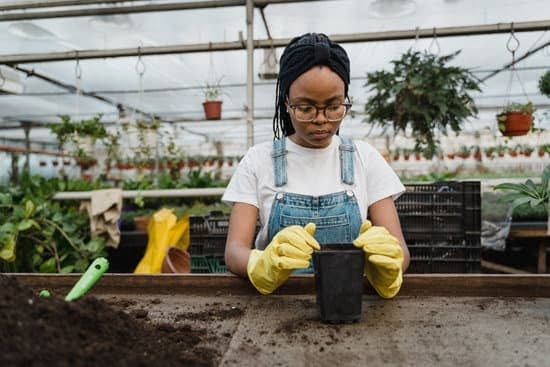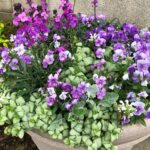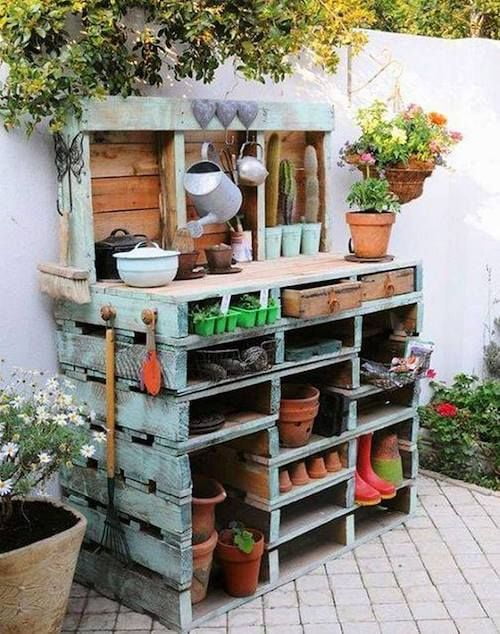Introduction to Organic Gardening In Maine
Organic gardening in Maine has been growing in popularity over the last few decades with many active organic gardeners meaning to avoid the use of pesticide, herbicides and other dangerous chemicals when putting food on their dinner table. These efforts commonly involve using natural methods such as crop rotation, companion planting and composting as alternatives to chemical inputs. Organic gardening also often aims to preserve soil health by creating a fertile environment for native biodiversity and microflora.
The biggest challenge for organic gardeners in Maine is undoubtedly the climate. With its cold winters, unpredictable spring frosts, short growing season and plenty of rain, planning an organic garden can be tricky and keep producers from becoming too optimistic about yields. To combat these challenges successful Maine organic growers are encouraged to practice ‘smart’ planting techniques such as planting cool season crops early in the spring or late summer/early fall harvests.
Gardening culture also varies greatly within New England with Maine offering unique challenges and opportunities. The cultural influences of the once dominant fishery economy persists within local communities, strengthening regional ties between gardeners – extension officers, farmers markets have been instrumental in connecting various parts of Maine seeking help or professional advice when it comes to growing their own food organically.
Organic gardening in Maine has been met with increasing levels of enthusiasm by local communities though more initiatives are still needed to ensure small-scale growers have access to qualitative information regarding organic philosophies and practices including sustainable approaches to pest management. Overall organic gardeners step up everyday determined to reduce their reliance on chemical input whilst protecting harvest yields so that families can enjoy fresh healthy food during clod Maine winter months: a worthwhile endeavour!
Organic Gardening Practices
Organic gardening in Maine is a growing trend as more and more people desire fresher, healthier produce and strive to work in harmony with nature. To ensure success when creating an organic garden, it’s important to follow good techniques for soil conservation and pest management and other effective strategies.
Soil conservation is key to successful organic gardening in Maine. Soil rich in nutrients is essential for nutrient-rich produce and avoiding pest infestations. It’s recommended that gardeners use methods such as crop rotation and mulching, which minimizes erosion by physically separating soil particles into layers while helping retain moisture levels beneath the surface of the soil. Gardeners should also create a compost bin to collect vegetable and kitchen wastes, which can later be added back into the soil as a natural fertilizer.
Pest management is another important factor for organic gardening in Maine as it helps protect crops from damaging insects or invasive weeds. Common organically approved pesticides include pyrethrin sprays, horticultural oils, soft soap sprays and neem oil for controlling aphids, plant viruses, mites etc., while biological control measures employ the help of beneficial organisms like ladybugs or spiders to control pests naturally in the garden environment. In addition, creative bug-trapping strategies like hanging yellow sticky traps among plants can help trap unwanted insect pests before they reach their destination. Other organic strategies such as pinching off infected leaves on vegetables or fruit trees can keep diseases from spreading quickly throughout a planting area. Finally, discouraged-use practices such as covering seedlings with floating row covers are often employed by experienced Maine organic gardeners because it helps protect vulnerable plants from being overrun by hungry bugs while allowing essential sunlight in-tact for photosynthesis needs – this method also helps reduce water input needed since plant growth remains cooler under the cover collecting dew drops during mornings for moisture around roots systems where necessary.
Gardening Resources
Organic gardening in Maine can be a great way to grow healthy, diverse, delicious fruits and vegetables for your local family. There are many resources available that can help people who are just getting started in organic gardening, such as the University of Maine Cooperative Extension’s Master Gardener Program. Through this program, Master Gardeners can provide helpful advice and instruction on topics ranging from soil preparation to composting and biodigesting, as well as offering support with pest identification and management.
In addition to the University of Maine’s resources, there are several organizations that offer information on organic gardening in Maine. The Maine Organic Farmers and Gardeners Association (MOFGA) offers educational events throughout the year – including free or restrictive-cost workshops for beginners through their Education Office – as well as an extensive library of books, articles, pamphlets, and other materials related to gardening in the area. Additionally, numerous nurseries throughout the state specialize in herbs, native plants, and organically-grown produce and supply materials such as seedlings. Seed swaps have also become increasingly popular in recent years; these informal events allow local gardeners to trade seeds they no longer need while learning more about growing in Central & Northern Maine climates. Local farmers markets tend to have knowledgeable vendors who can provide tips and resources specific to your location. Finally, there is tremendous online support available through community forums like Facebook pages or email listservs where experienced gardeners share advice about organic gardening techniques known to work best for their own zones/regions within Maine.
Plant Selection & Planting Considerations
The climate in Maine is ideal for growing a wide variety of vegetables plants and flowers. In the spring, hearty cool-season crops like kale and cabbage thrive on soil that has been prepped with compost or manure. After the last frost, many warmer season vegetables can be planted including squash, tomatoes, peppers, beans and cucumbers. Summer is a great time to plant root vegetables like onions, garlic and potatoes. Fall brings cool temperatures that make it possible to grow many leafy greens such as spinach and mizuna.
To make the most of organic gardening in Maine, it’s important to select varieties of plants that are well-suited to its climate and conditions. Organic gardeners should look for varieties that are disease-resistant and cold-hardy. For best results, plants should be spaced according to instructions on the seed packet or nursery description. Planting in hilled rows helps use less space while also creating air pathways between plants that promote growth and help prevent diseases within the plant group. Variety selection can also help maximize yield production throughout the season by determining when different types of produce can be harvested at peak ripeness before tough rinds develop making harvesting more difficult. It’s also important to consider companion planting techniques where certain combinations of vegetables actually benefit each other when grown together such as planting cucumbers near corn or dill near squash..
By following these tips, gardeners can ensure their organic gardens are as successful as possible regardless of what type of environment they may have available in Maine!
Potting Soil & Composting
Organic gardening in Maine requires careful consideration of available resources. Potting soil is a great way to protect and revive soil quality in Maine: it can be purchased already mixed with fertilizer, and it provides more nutrients than regular topsoil. Additionally, composting can enhance the soil quality as composted materials break down, releasing nitrogen and other nutrients into the soil which will help enrich it further. Using these techniques can help restore depleted or damaged soils, or even create a better base for new plantings. Composting also has environmental benefits over traditional fertilizers: you are reducing your carbon footprint by using natural materials instead of petroleum-based products. Furthermore, by adding compost to your home garden, you won’t have to worry about unwanted contamination from chemical fertilizers. Soil amendments like these add essential nutrients without any negative impacts on the environment; organic gardening in Maine is a great way to ensure that both plants and pollinators prosper!
Conclusion
Organic gardening in Maine is a great way to help build resilience in the local food system and promote sustainability. By growing without synthetic chemicals, organic gardeners can ensure they are producing healthier and more nutritious food that is free from potentially harmful additives. Not only is organic produce healthier for your family, but it’s also better for the environment. In addition to reducing the amount of synthetic fertilizers or pest control products that can end up in our waterways, organic gardens don’t require nearly as much energy to operate since there isn’t any large machinery necessary for its operation. Organic gardening also has immense psychological benefits. Spending time outdoors improves mood, reduces stress, and increases mental wellbeing. Finally, growing you own food can be rewarding and provide a sense of accomplishment that you normally wouldn’t get from buying produce from a store. Therefore, if you are interested in creating a sustainable food source while becoming healthier both physically and mentally—organic gardening in Maine is the way to go! Get out there today; get your hands dirty and start planting!

Welcome to my gardening blog! I am passionate about plants and enjoy sharing my knowledge and experiences with others. In this blog, I will write about everything related to gardening, from tips on how to get started to updates on my own garden projects.





